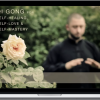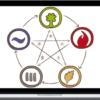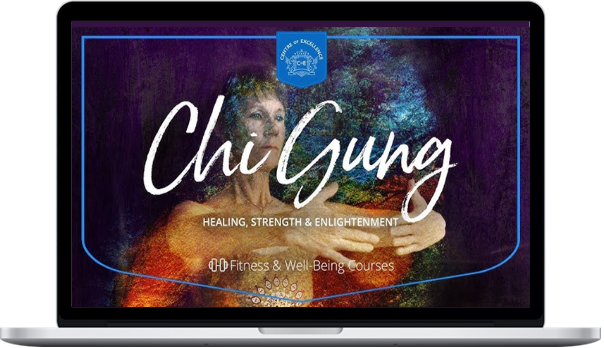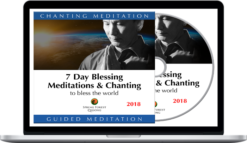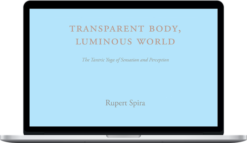Centre of Excellence – Chi Gung Diploma Course
$177.00 $33.00
»Delivery: Within 24hs
Description
Centre of Excellence – Chi Gung Diploma Course
Description Of Chi Gung Diploma Course
Chi Gung is a holistic therapy working on the mental, emotional, physical and spiritual levels. This course will equip you with the knowledge and skills needed to practice Chi Gung, with a comprehensive understanding of its health and wellbeing benefits.
The course begins by laying the landscape of alternative practices and where Chi Gung sits within the different systems of medicine and how moving energy is used in other practices. The Chi Gung Diploma Course discusses the difference between Western and Eastern medicines and the difference between alternative and complementary therapies before introducing you to various popular complementary and alternative therapies.
You’ll be guided through the practices of meditation and visualisation, discovering what each is, the benefits and how to practice them. This knowledge will then be used with additional skills learned later in the course; self-reflection, focus, listening to your body, understanding the importance of stilling the body and mind, and grounding yourself. You’ll also explore the various energy systems and methods of energy movement.
Having deepened your overall knowledge, you’ll focus in on Chi Gung, as the course explains what it is and how you will benefit from taking up the practice, whether for medical/healing reasons, strength/stamina or for spiritual enlightenment. You’ll discover where it came from, how it evolved, how it is practised today and some important names in modern-day Chi Gung.
Chi (or qi), the life energy flow that runs in, through, and out your body, is a fundamental of the Chi Gung practice. You’ll be guided through what it is and provided with practical instruction on correct posture and breathing with Chi, as well as some basic techniques for moving Chi around your body.
As with anything you do in life, preparation is as, if not more, important than the action itself. If you prepare well, it is likely to lead to a successful outcome. The Chi Gung Diploma Course guides you through the simple preparations you must make before commencing your practice and how to carry out an opening exercise.
In Chinese philosophy, the five elements are mapped to areas of the human body. You will learn about the focus of each of these elements and the association between these and chi. You will then go on to follow Chi Gung exercises for each element and exercises for specific needs, which will improve health and vitality, heal the body from illness and injury, and develop the powers of the mind. You will also be provided with 3 case studies that demonstrate the effectiveness of Chi Gung therapy.
In addition to teaching you about Chi Gung itself, the course goes further by providing guidance on starting your own Chi Gung business. You’ll learn about the different types of business and how to write a business plan, market your business, navigate the legalities of setting up and running a business and lead a Chi Gung class.
What You’ll Learn In Chi Gung Diploma Course
Course Syllabus
What will I learn on the course?
Module 1 – Ancient Healing Beliefs
- Introduction
- Part 1: Where Did It All Begin?
- Part 2: Popular Complementary and Alternative Treatments
- Test Your Knowledge
- Key Learning Points
- Module 1 Assessment
Module 2 – Meditation and Visualisation
- Part 1: What is Meditation?
- Part 2: How to Meditate
- Part 3: When and Where to Meditate
- Part 4: What is Visualisation?
- Test Your Knowledge
- Key Learning Points
- Module 2 Assessment
Module 3 – Introduction to Chi Gung and Body Energy
- Part 1: What is Chi Gung?
- Part 2: Body Energy
- Part 3: The Human Body
- Part 4: Meridians
- Part 5: Mudras
- Test Your Knowledge
- Key Learning Points
- Module 3 Assessment
Module 4 – The History of Chi Gung and Where We Are Now
- Part 1: The First Period
- Part 2: The Present
- Test Your Knowledge
- Key Learning Points
- Module 4 Assessment
Module 5 – Additional Skills
- Part 1: Self-Reflection/Self-Awareness
- Part 2: How to Self-Reflect
- Part 3: Listening to Your Body
- Part 4: How to Develop Stability and Grounding Skills
- Test Your Knowledge
- Key Learning Points
- Module 5 Assessment
Module 6 – Introduction to Chi
- Part 1: Chi
- Part 2: Chi Prayer Hands
- Part 3: Feeling the Chi During Breathing
- Test Your Knowledge
- Key Learning Points
- Module 6 Assessment
Module 7 – Preparation and Opening Exercises
- Part 1: Introduction
- Part 2: Health and Safety Considerations
- Test Your Knowledge
- Key Learning Points
- Module 7 Assessment
Module 8 – The Five Elements and The Associated Chi Gung Exercises
- Part 1: The Five Elements
- Part 2: The Five Elements and Chi Gung
- Part 3: Working with the Wood Element in Exercise
- Test Your Knowledge
- Key Learning Points
- Module 8 Assessment
Module 9 – Further Exercises and Case Studies
- Part 1: Further Exercises I
- Part 2: Further Exercises II
- Part 3: Case Studies
- Test Your Knowledge
- Key Learning Points
- Module 9 Assessment
Module 10 – Starting a New Business
- Part 1: First Things First
- Part 2: Marketing Your Business
- Test Your Knowledge
- Key Learning Points
- Conclusion
- Module 10 Assessment
Who Would Benefit from This Course?
With comprehensive materials on complementary and alternative therapies and the theory and movement of chi, the Chi Gung Diploma Course is accessible to those who are completely new to this system of treatment. Seasoned practitioners of similar forms of treatment will enjoy the exhaustive detail and explanations of Chi Gung itself, its benefits, and how to practice its techniques.
The course will also be beneficial to those wishing to start a Chi Gung business, as it offers guidance on getting set up and tips for success.
About Centre of excellence
Here at Centre of Excellence we are supremely proud to be at the heart of a vibrant community of hard-working students. The determination and enthusiasm of our students never ceases to impress us and there is nothing better than seeing our graduates go on to succeed in further education, work, business or just life in general!
More courses from the same author: Centre of excellence
Delivery Policy
When will I receive my course?
You will receive a link to download your course immediately or within 1 to 21 days. It depends on the product you buy, so please read the short description of the product carefully before making a purchase.
How is my course delivered?
We share courses through Google Drive, so once your order is complete, you'll receive an invitation to view the course in your email.
To avoid any delay in delivery, please provide a Google mail and enter your email address correctly in the Checkout Page.
In case you submit a wrong email address, please contact us to resend the course to the correct email.
How do I check status of my order?
Please log in to HealingCourse account then go to Order Page. You will find all your orders includes number, date, status and total price.
If the status is Processing: Your course is being uploaded. Please be patient and wait for us to complete your order. If your order has multiple courses and one of them has not been updated with the download link, the status of the order is also Processing.
If the status is Completed: Your course is ready for immediate download. Click "VIEW" to view details and download the course.
Where can I find my course?
Once your order is complete, a link to download the course will automatically be sent to your email.
You can also get the download link by logging into your HealingCourse account then going to Downloads Page.
Related products
Total sold: 1
Total sold: 11
